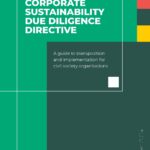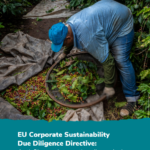Responsible business
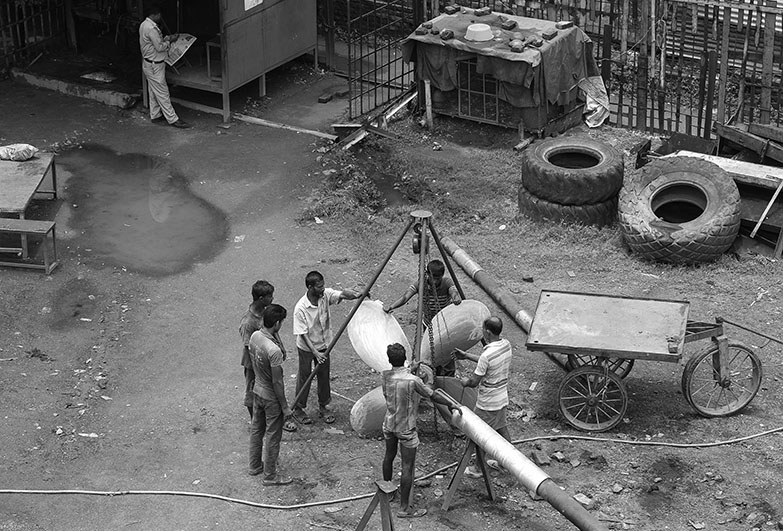
What’s the issue?
Millions of people worldwide are exploited, harmed, and forced into labour to produce the goods and services we buy and use every day. This exploitation takes many forms, including forced labour and debt bondage.
Workers are being failed by governments, businesses and the global economy. The protections that are in place are falling short and we are seeing profit coming before people and planet.
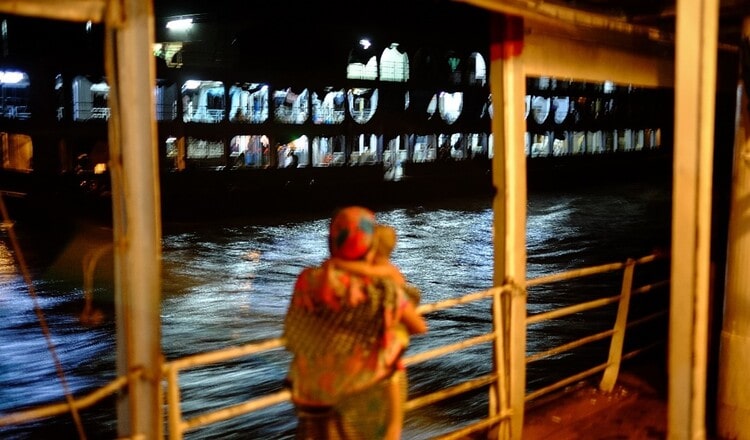
Forced labour, according to the International Labour Organization’s 1930 Forced Labour Convention, is: all labour “under the threat of a penalty and for which the person has not offered himself or herself voluntarily.”
Debt bondage is where a person is tricked into working for little or no pay in order to pay off a debt, and according to the recent Global Estimates of Modern Slavery, accounts for around one-fifth of all cases of forced labour in the private sector.
Three examples of forced labour in businesses
- Forced labour of women and girls in Tamil Nadu in fashion supply chains. Unmarried girls aged between 13 and 18 are tied into multi-year contracts in mills that operate 24 hours a day. Not only do these girls suffer appalling working conditions, but they are separated from their families and only permitted occasional visits. They may be forced to live in unsanitary conditions, work below minimum wage with unpaid overtime, and be vulnerable to frequent injuries in the workplace. Given the global, and opaque, nature of many businesses’ supply chains, the products that these women have made with forced labour are likely to have been transported all over the world, and may even have ended up in our high street
- Multinational companies purchasing coffee from suppliers linked to modern slavery. Both the coffee and cocoa sector in Brazil have been found to have a deep reliance on forced labour. While this is now broadly well known, many companies have continued with the same practices and suppliers. In 2021, Repórter Brasil reported stories of workers who were living in precarious housing and forced to pay their employers for their essential needs, such as food and fuel. On one farm alone, 24 people were found to be working and living in slavery-like conditions. However, over six months later, Repórter Brasil found that multinational companies were still purchasing from suppliers linked to these slavery conditions
- Daily products sold around the world such as clothes, solar panels, tomato paste and PVC flooring are tainted by egregious human rights abuses in the Uyghur Region. The Chinese government is perpetrating mass human rights abuses against Uyghur, Turkic and other Muslim majority-peoples in the Xinjiang Uyghur Autonomous Region (Uyghur Region), with an estimated 1 million to 1.8 million Uyghurs and others held in mass arbitrary detention. Forced labour makes up a key part of the system of control. Uyghurs are forced to work in the Uyghur Region and across China in factories that produce goods sold all over the world
Workers need to be able to access and exercise their rights, ensuring they are protected – whilst consumers need to know that their goods and services are free from human rights abuses. That’s why addressing modern slavery in supply chains is one of the central pillars of Anti-Slavery International’s work, along with our work on climate change, migration and trafficking, and child slavery.
What do we want to see?
No-one in the world should be subjected to forced labour. We work to eliminate slavery from supply chains and help workers enjoy decent work conditions.
It’s critical that workers enjoy their right to basic labour rights – such as living wages and joining a union – so that forced labour can be prevented.
Our work on responsible business is closely linked to our goals on climate change, child slavery and trafficking and migration to ensure that we tackle the problem of modern slavery holistically.
What are we doing about it?
Broadly, our work on responsible business falls into four key areas:
- Legal protection. We campaign for the implementation of national and international laws that will hold businesses to account for failing to prevent forced labour and other human rights and environmental abuses in their supply chains. Decades of voluntary ‘corporate social responsibility’ strategies have failed to protect many millions of people from exploitation; and existing laws, including the UK’s 2015 Modern Slavery Act, are not strong enough to protect workers. We need new legal frameworks that compel businesses to stop exploitation at every stage of their supply chains and allow survivors of modern slavery – or those at risk – to access justice. We work globally with organisations, trade unions and policy-makers to put modern slavery in supply chains at the top of the political agenda. Read our FAQs on addressing forced labour in global supply chains
- Working with businesses. Some businesses do recognise the need to prevent forced labour, and we help them to work towards this common goal. Through our business advisory services, we work as a ‘critical friend’ to companies, helping them identify the risk of modern slavery in their supply chains and to take serious action to prevent it
- Partnerships to support workers. Workers must be able to know about – and exercise – their basic labour rights, such as fair pay and fair contracts, in order for modern slavery to be prevented. We make sure workers are closely involved in the efforts taken to end modern slavery, along with the work of trade unions and businesses
- Tackling state-imposed forced labour. Some governments subject their citizens to forced labour and other abuses. As a result, many products – including textiles, solar panels and many everyday goods sold on the high street – can be tainted by state-imposed forced labour. Since the late 2000s, we have worked with our partners in the Cotton Campaign to end state-imposed forced labour in cotton production in Uzbekistan and Turkmenistan, and since 2020 as part of the Coalition to End Forced Labour in the Uyghur Region we’ve been striving to end to the Chinese government’s persecution of Uyghurs and other Turkic and Muslim groups in the Xinjiang Uyghur Autonomous Region
Our track record
In recent years our focus on responsible business has led to some notable successes, including:
- An end to state-imposed forced labour in Uzbekistan. After over a decade of campaigning, in March 2022 we saw the elimination of state-imposed forced labour in Uzbekistan’s cotton harvest. This could only be achieved by a coordinated global campaign by Uzbek civil society and human rights activists, campaigners and business associations to persuade the Uzbekistan government to trade responsibly
- Commitments within the EU: The EU is the world’s largest single market – so EU laws that affect businesses can have a global impact. After years of campaigning, in 2022 we saw the EU publish its draft proposed laws on how to hold companies accountable for forced labour and other human rights and environmental abuses in their value chains. These laws should come into effect by 2026, and we continue to campaign for them to be the most effective possible
- Protecting migrant workers in Mauritius. In 2021, in a project supported by ASOS and IndustriALL Global Union, we collaborated with a Mauritian trade union, Confédération des Travailleurs des Secteurs Publique et Privé (CTSP), and other stakeholders to establish an industry-leading project to prevent the exploitation of migrant workers travelling from Bangladesh and Madagascar to Mauritius. This project is a good example of how employers, trade unions, workers and other partners can work together successfully to champion workers’ rights
Our work continues, every single day. We will not stop until every worker has access to decent work and is free from exploitation and slavery. If you’d like to support us in our work, please consider joining us.
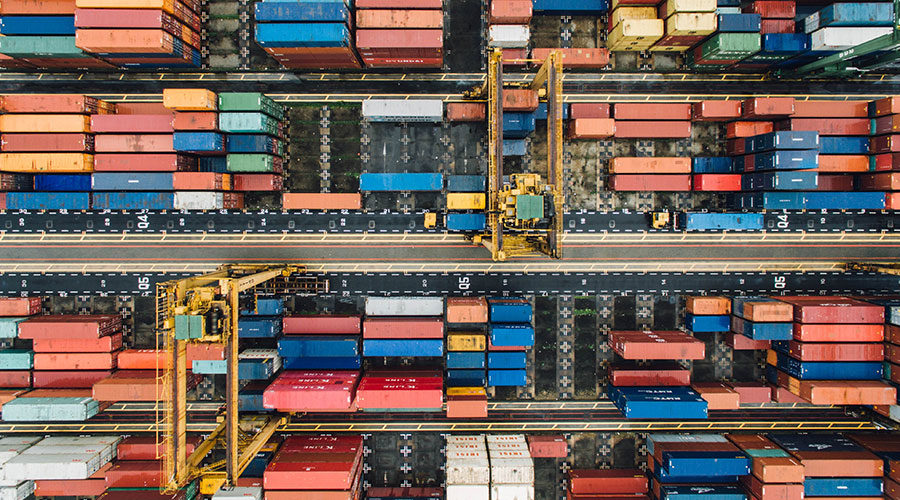
Work with us. If you’re looking to make sure your business is working to end modern slavery in its supply chain, get in touch to see how we can help you.
